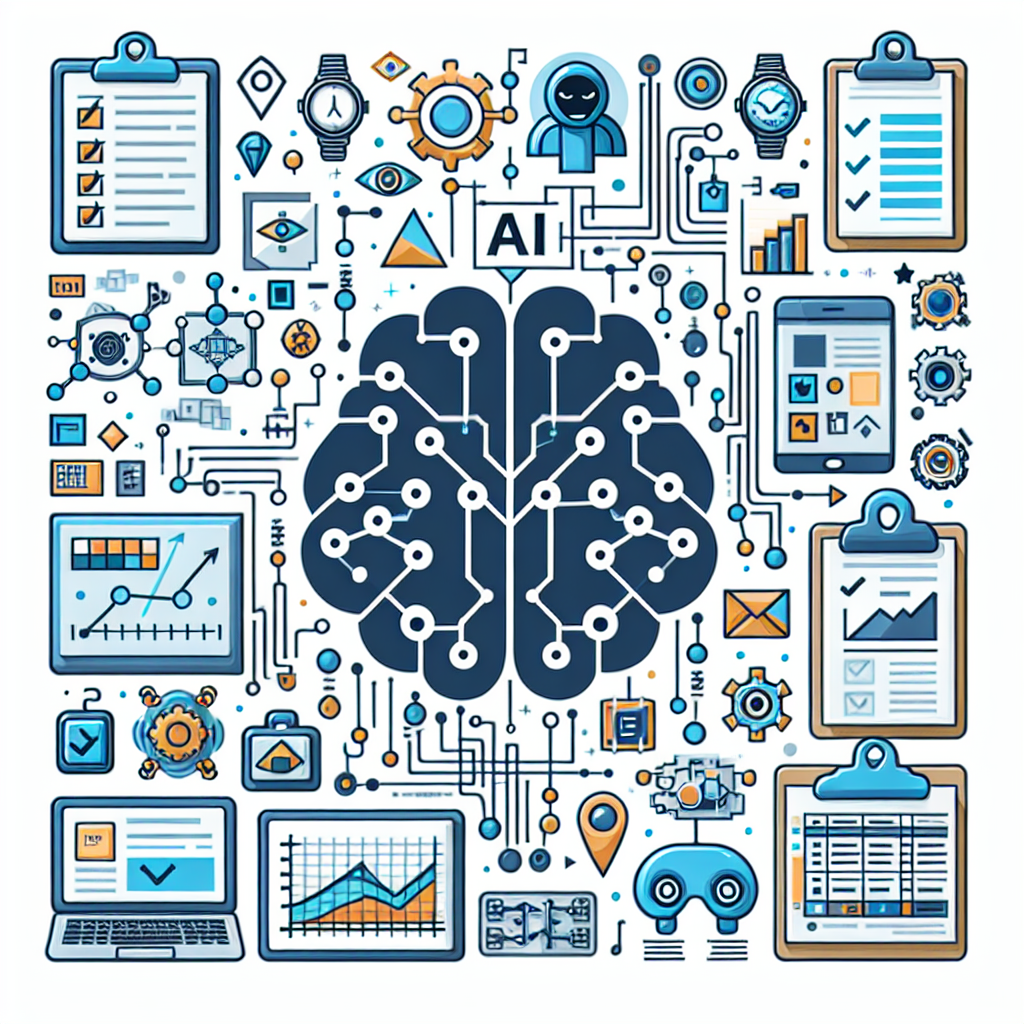Artificial Intelligence (AI) is transforming the way project management is being conducted. With its ability to analyze data, make predictions, and automate tasks, AI is revolutionizing project management by increasing efficiency, reducing costs, and improving decision-making. In this comprehensive guide, we will explore how AI is being used in project management, its benefits and challenges, and how you can implement AI in your project management practices.
Benefits of AI in Project Management:
1. Improved Decision Making: AI can analyze large amounts of data and provide insights that can help project managers make better decisions. By analyzing historical data, AI can predict potential risks and suggest ways to mitigate them.
2. Automation of Repetitive Tasks: AI can automate repetitive tasks such as data entry, scheduling, and reporting, freeing up project managers to focus on more strategic tasks. This can help save time and reduce the risk of human error.
3. Resource Optimization: AI can help project managers optimize resource allocation by analyzing data on team performance, project timelines, and budget constraints. By recommending the best resource allocation strategy, AI can help maximize productivity and minimize costs.
4. Risk Management: AI can help project managers identify potential risks early on by analyzing historical data and predicting future outcomes. By providing real-time insights, AI can help project managers take proactive measures to mitigate risks and ensure project success.
Challenges of AI in Project Management:
1. Data Quality: The success of AI in project management depends on the quality of the data it is fed. If the data is incomplete, inaccurate, or outdated, AI may provide incorrect insights and recommendations. It is important to ensure that the data used by AI is of high quality and relevance.
2. Implementation Costs: Implementing AI in project management can be costly, especially for small and medium-sized businesses. From acquiring AI tools to training employees on how to use them, the upfront costs of AI implementation can be a barrier for some organizations.
3. Resistance to Change: Some employees may be resistant to using AI in project management, fearing that it will replace their jobs or make their roles obsolete. It is important for project managers to communicate the benefits of AI and involve employees in the implementation process to address any concerns.
How to Implement AI in Project Management:
1. Define Your Objectives: Before implementing AI in project management, it is important to define your objectives and goals. Determine what you want to achieve with AI, such as improving decision-making, automating tasks, or optimizing resource allocation.
2. Choose the Right AI Tools: There are many AI tools available for project management, ranging from predictive analytics to natural language processing. Choose the tools that best align with your objectives and budget, and ensure that they are user-friendly and easy to integrate with your existing systems.
3. Train Your Team: Once you have chosen the AI tools, train your team on how to use them effectively. Provide hands-on training sessions, workshops, and tutorials to help employees understand the benefits of AI and how it can improve their project management practices.
4. Monitor and Evaluate: Monitor the performance of AI in project management and evaluate its impact on key metrics such as project timelines, budget adherence, and team productivity. Use this data to make informed decisions on how to further optimize your AI implementation.
5. Iterate and Improve: AI is constantly evolving, so it is important to iterate and improve your AI implementation over time. Seek feedback from employees, stakeholders, and customers on how AI is impacting project management and make adjustments as needed.
Frequently Asked Questions (FAQs):
1. What are some examples of AI tools used in project management?
Some examples of AI tools used in project management include predictive analytics, natural language processing, and machine learning. These tools can help project managers analyze data, automate tasks, and make predictions to improve decision-making.
2. How can AI help project managers optimize resource allocation?
AI can help project managers optimize resource allocation by analyzing data on team performance, project timelines, and budget constraints. By recommending the best resource allocation strategy, AI can help maximize productivity and minimize costs.
3. What are the key benefits of implementing AI in project management?
Some key benefits of implementing AI in project management include improved decision-making, automation of repetitive tasks, resource optimization, and risk management. AI can help project managers make better decisions, save time, optimize resource allocation, and mitigate risks to ensure project success.
4. How can project managers overcome resistance to using AI in project management?
To overcome resistance to using AI in project management, project managers should communicate the benefits of AI, involve employees in the implementation process, and provide training on how to use AI tools effectively. By addressing concerns and involving employees in the process, project managers can help employees see the value of AI in project management.
In conclusion, AI is transforming project management by improving decision-making, automating tasks, and optimizing resource allocation. By implementing AI in project management, organizations can increase efficiency, reduce costs, and improve project outcomes. By defining objectives, choosing the right AI tools, training your team, and monitoring performance, you can successfully implement AI in your project management practices. With the right approach and mindset, AI can help project managers take their projects to the next level.

